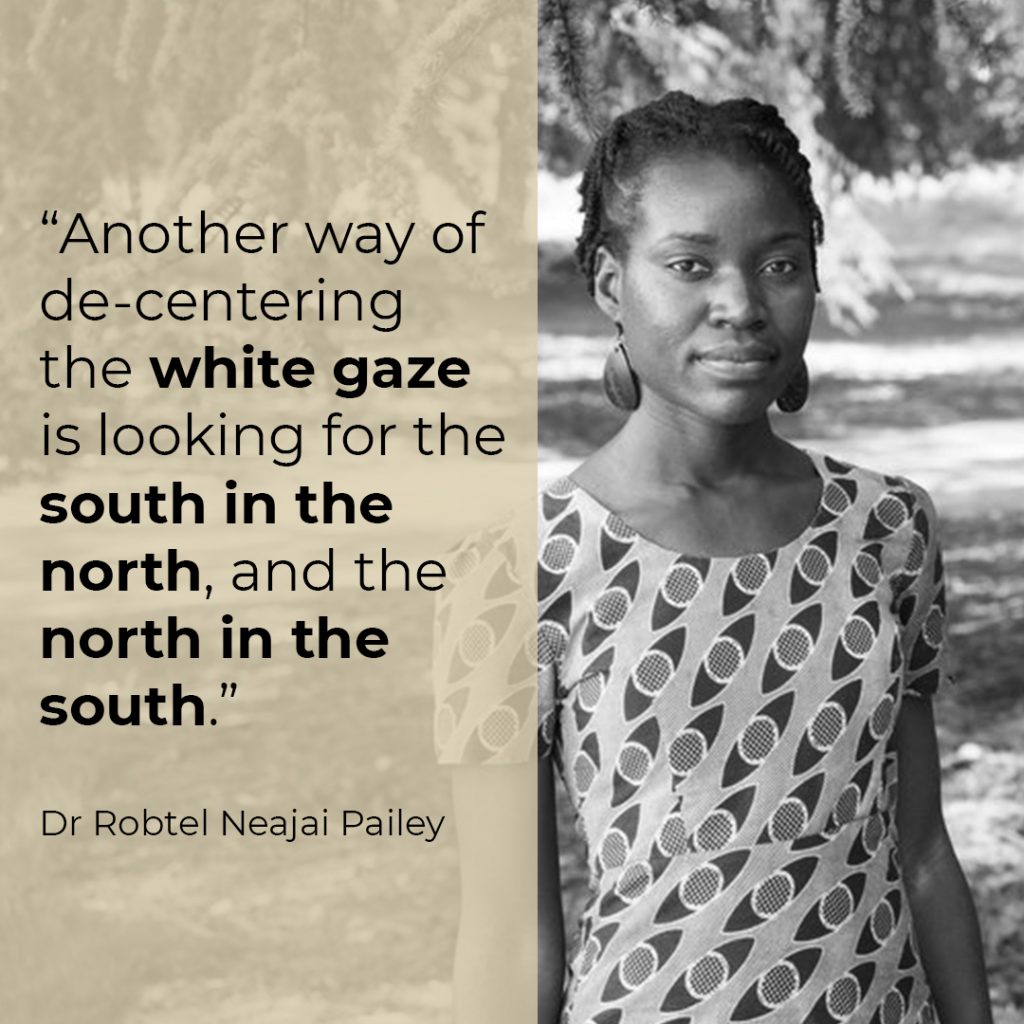Given recent events in the United States that have sparked mass protests around the banner of #BlackLivesMatter not only there, but across the world, we ought to talk about this right here. The COVID-19 pandemic has pushed us to rethink solidarity, and these protests calling for racial justice force us to ask questions also of the aid and development sectors.
“This is ultimately part of a broader complex debate around who gets to decide what is development, progress and justice, and what it isn’t.”
In the midst of compulsory confinement and social isolation, masses have gathered in public spaces in many different countries with signs that read statements such as “the real pandemic is racism”. In this dystopian pandemic of police brutality and global racism, protesters are, effectively, essential workers.
This is not a new conversation. And it’s not a conversation reserved for US-centred experiences of racial relations. Events in the US have opened old wounds in other places with histories of violent racial relations and legacies of colonialism. And because racism is sustained by structures and perpetuated through power dynamics, the aid and development sectors are not exempt. In fact, international development institutions have been coming under fire for a long time for perpetuating the power dynamics of colonization through their work.
We cannot tackle discrimination without naming it. Beyond a discussion about power relations marked by race, this is ultimately part of a broader complex debate around who gets to decide what is development, progress and justice, and what it isn’t. It raises fundamental questions around power and relationships, and it requires some profound questioning of the worldview that guides our life and work.
De-centering the ‘white gaze’ of development
To center this important discussion, we released this special episode of Power in the Pandemic from an interview I did last year with Robtel Neajai Pailey, a Liberian academic, activist and author, based at the University of Oxford. I spoke with her after hearing her deliver a powerful keynote at the Development Studies Association conference last June 2019, titled De‐centring the ‘White Gaze’ of Development, which laid out the ways in which development thinking and praxis is fundamentally raced.
Here it is – have a listen and check out the highlights below.
On the ‘white gaze’ of development, Robtel says:
“The white gaze of development is measuring black, brown and non-white people against the standard of northern whiteness, and taking their political, economic and social processes as a norm […] Development uses that standard of northern whiteness to measure economic, political and social processes of people in the so-called global South.”

“Development is visualized or portrayed as a global south phenomenon […] but in terms of how development is conceived, practiced and theorized, those are not the people that are at the very helm of determining what development is. And that is a travesty. …”
Critical takes on the 21st century version of the ‘decolonial turn’:
“Decolonization is not a new phenomenon […] But with the 21st version of this has become very apolitical; it stays in academia and it’s about changing the curriculum without linking it to the everyday dilemmas that people in the global South face: fighting autocracy, homophobia, ecological damage, racism, patriarchy. Those are the real issues that people face. And I think that decolonization as an academic pursuit is one that misses out on those linkages.”
“We need to get out of our heads as academics. Decolonization is political, it’s violent, it’s not about maintaining the status quo.”
How to tackle ‘internal colonization’ in the global South?
“Global south-north binaries are not fixed. Even within the south or north, there are hierarchies. Another way of de-centering the white gaze is looking for the south in the north, and the north in the south.”

Recommendations to help de-center the ‘white gaze’ from development thinking and practice:
Mainstreaming race is what Robtel says needs to happen first: “Race has to be spoken into existence and be mainstreamed within development. We can’t pretend that imperialism was not based on racial structures, or even the way that global capital moves. We need to speak race into existence in scholarship as much as policy and practice.”She also proposes using “race as an analytical frame as important as gender.”
Then, we have to take a good look at what inclusion looks like in hiring practices: “Global institutions that really determine how development is structured and deployed – from global financial institutions to their NGO proxies – need to look at their hiring practices. Why is it that most people that are in positions of power are white people?”
“Diversity, equality, and inclusion (DEI) hiring protocols and guidelines are not enough, so how do we overcome tokenizing or checklisting behaviour? It’s not just about adding people of color, but thinking are they challenging the status quo or reproducing the racist tropes they’re also part of? Hiring practices have to be about rupture. We need to be looking for the people who are not interested in maintaining the status quo but turning the sector on its head. These individuals exist, but many others have a stake in maintaining the status quo.”
On how we can popularise these conversations, Robtel highlights the power of storytelling and sharing lived experience: “Narratives and stories are really important. They are entry points to talk about deeper issues.”
More resources
We’re compiling a series of resources (articles, books, videos, educational tools, talks, etc.) on this topic, which well publish at the end of this week as part of #PowerShiftsResources.
Also make sure to check out the reference list at the bottom of Robtel’s article on the nexus between race & development.
And follow Power Shifts on Instagram, where we post and share content on these topics.
Featured image: Miki Jourdan, CC licensed